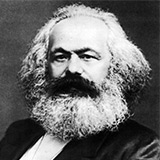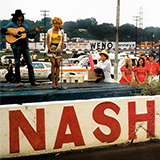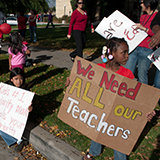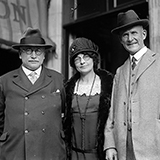
Significant change to our political economy will require significant change to our structure of government. It is hard to see how to get there without some kind of “populist” moment, fraught with danger to other values we believe to be essential.

Oil magnate David Koch stepped down from the board of the American Museum of Natural History on December 9, 2015. His departure came only months after dozens of scientists signed a letter calling on the science museum sector to sever …

Debates between socialists and liberals are not new. But nor, perhaps, are they completely irreconcilable. [From the archives]
To access Dissent’s full Winter 2016 issue, please click here. This page is a placeholder.
Log in to download the EPUB or MOBI edition.

When Nashville was anointed the capital of country music, a true American icon was born.

Kamel Daoud’s Meursault, contre-enquête is complex and irreverent, scorning both colonialism and Eurocentrism as well as postcolonial dreams of national liberation and clerical authority.

Pulsating with racial and national anxieties, cyberpunk icon William Gibson’s future America is not so different from the one we know.

Can the Latin American left really be divided into a moderate, social democratic “right left” and an authoritarian, populist “wrong” one?

Today’s embrace of “innovation” in higher ed advances the interests of the business elite over those of educators or students.

While childcare costs have soared, wages in the industry have stayed flat—leaving nearly half of childcare workers dependent on public benefits to survive. Why is the labor of educating children worth so little?

By reframing war in terms of “moral injury,” philosopher Nancy Sherman dodges the question of who is responsible for its horrors in the first place.

Despite the right’s appeals to “family values,” free-market policies are extremely destructive to American families.

If Bernie Sanders’s presidential run is to herald a new socialist movement, American leftists will have to overcome the combination of sectarianism, repression, and cooptation that doomed their predecessors.

What’s the difference between socialism and social democracy? In 1991, Dissent convened several longtime contributors to answer that question, somewhat rephrased: what would distinguish socialism from a slightly improved version of Sweden?




















